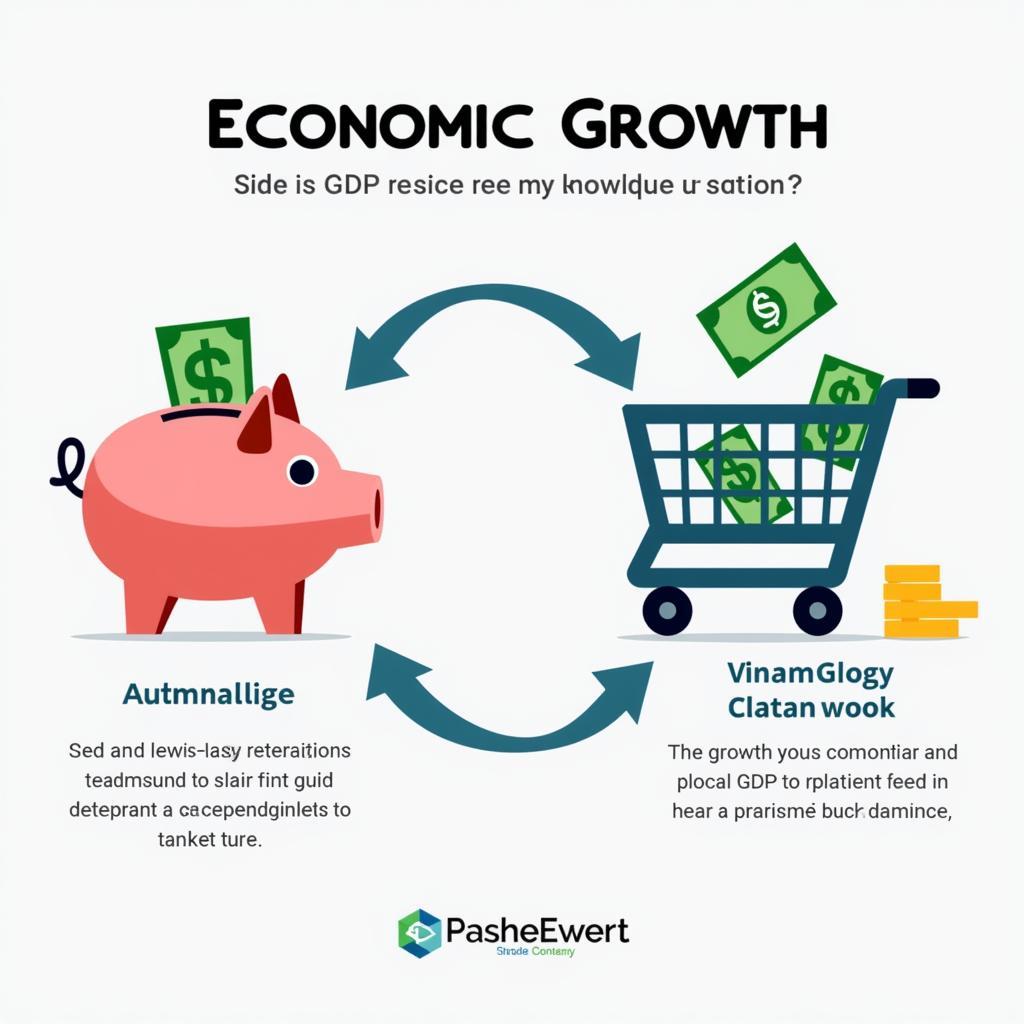The relationship between savings and economic growth has been a recurring theme in IELTS Writing Task 2, appearing approximately 3-4 times annually in recent years. Based on analysis of past exam patterns, questions about personal and national savings are likely to continue featuring prominently, especially given their relevance to global economic challenges.
The importance of financial inclusion for economic development has become increasingly significant in recent years, particularly in developing economies. Let’s examine a common IELTS Task 2 question on this topic.
Topic Analysis
Some people believe that saving money is crucial for economic growth while others think spending money is a better way to develop the economy. Discuss both views and give your opinion.
This question requires discussing two contrasting perspectives on economic development while presenting a clear personal stance. The key aspects to address are:
- The relationship between savings and economic growth
- The impact of consumer spending on the economy
- A balanced evaluation of both viewpoints

Sample Essay 1 (Band 8.5)
In the ongoing debate about economic development, some argue that saving money is essential for sustainable growth, while others contend that increased spending better stimulates the economy. In my view, while both approaches have merit, a balanced combination of savings and spending is most beneficial for economic prosperity.
The proponents of saving emphasize its crucial role in capital formation and investment. When individuals and businesses save money, these funds become available through financial institutions for productive investments in infrastructure, technology, and business expansion. importance of strategic planning in saving demonstrates how accumulated capital can fuel long-term economic growth through increased productive capacity. Furthermore, higher saving rates typically correlate with greater financial stability and resilience during economic downturns.
Conversely, advocates of spending argue that consumer expenditure drives economic activity. When people spend more, businesses experience increased revenue, leading to job creation and higher wages. This creates a positive cycle where increased consumption stimulates production and investment. Additionally, in times of economic slowdown, increased spending can help revitalize the economy by boosting demand for goods and services.
importance of investing in low-risk assets shows that the optimal approach involves maintaining a careful balance between saving and spending. While excessive saving can lead to reduced consumer demand and economic stagnation, inadequate saving rates can result in insufficient capital for investment and development. The key lies in promoting responsible saving while maintaining healthy levels of consumption.
In conclusion, both saving and spending play vital roles in economic growth, but their effectiveness depends on proper balance and timing. Governments and policymakers should encourage prudent saving while ensuring sufficient consumer spending to maintain economic momentum.
Sample Essay 2 (Band 6.5)
These days, people have different opinions about whether saving or spending money is better for the economy. While some think saving is very important, others believe spending helps the economy more. I think both ways have their good points.
People who support saving money say it helps the economy grow. When people put money in banks, the banks can lend this money to businesses. Then businesses can buy new machines or build new factories. importance of savings in building wealth also helps people prepare for their future needs.
On the other hand, spending money also helps the economy. When people buy things, shops and companies make more money. This means they can hire more workers and pay better salaries. Also, when people spend more, the government gets more tax money which they can use for public services.
I think both saving and spending are important. If everyone only saves money, shops might close and people might lose jobs. But if people only spend and don’t save, there won’t be enough money for big projects that help the economy grow.
To conclude, saving and spending both help the economy in different ways. The best way is to do both – save some money and spend some money carefully.
Score Analysis
Band 8.5 Essay:
- Task Response (9): Comprehensive coverage with clear position
- Coherence & Cohesion (8): Logical organization with effective paragraphing
- Lexical Resource (8): Sophisticated vocabulary use with natural collocations
- Grammar (9): Wide range of complex structures used accurately
Band 6.5 Essay:
- Task Response (6): Basic development of ideas
- Coherence & Cohesion (7): Clear overall progression but simple linking
- Lexical Resource (6): Adequate but repetitive vocabulary
- Grammar (7): Mix of simple and complex structures
Key Vocabulary
- Capital formation (n) /ˈkæpɪtl fɔːˈmeɪʃn/ – The creation of capital assets
- Infrastructure (n) /ˈɪnfrəstrʌktʃə/ – Basic physical systems of a country
- Economic resilience (n) /ˌiːkəˈnɒmɪk rɪˈzɪliəns/ – Ability to recover from economic shocks
- Consumer expenditure (n) /kənˈsjuːmər ɪkˈspendɪtʃə/ – Spending by individuals
- Economic stagnation (n) /ˌiːkəˈnɒmɪk stægˈneɪʃn/ – Period of little or no growth
Practice Suggestion
Try writing your own essay on this similar topic:
“Some economists believe that people should be encouraged to save more, while others argue that spending is better for the economy. What are your views on this?”
Share your practice essays in the comments section for feedback and discussion.